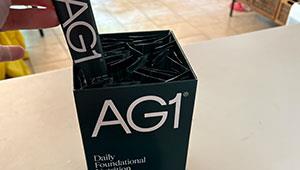Carrots and Sweet Potato
The antioxidant beta carotene has been studied to increase the number natural killer T-cells in our immune system. Beta carotene is a powerful antioxidant that mops up excess free radicals that can accelerate illness.
Zinc
Zinc is a mineral which increases the production of white blood cells. Always include zinc from food sources rather than in a supplement form. As little as 15 to 25 milligrams a day will help to support immune function. Some of the top zinc foods are oyster, crab, grass-fed beef and beans.
Garlic
Garlic is known for its antibacterial, antiviral, antifungal and immune boosting effects. Garlic stimulates the production of white blood cells and increases the efficiency of antibody production. The immune-boosting properties of garlic seem to be due to its sulfur-containing compounds. Garlic can also act as an antioxidant that reduces the build-up of free radicals in the bloodstream.
Omega-3 Fatty Acids
Omega-3 fats reduce inflammation, increasing airflow and protect the lungs from colds and respiratory infections. The omega-3 fatty acids in ground flaxseed and fish such as, salmon, tuna, sole, flounder, sardines, herring and mackerel, act as immune boosters by increasing the activity of phagocytes, the white blood cells that destroy bacteria. Other omega 3 rich foods are tofu, edamame and walnuts.
More: 6 Green Super Foods to Add to Your Diet
Tea
The amino acid responsible for immune boosting components in tea is, L-theanine. It is abundant in both black and green tea. Many already know to drink green tea to help fight disease, new research is also including white tea, for its strong ability to destroy the organisms that cause disease.
Not only should you boost your intake of certain nutrients, but there are certain things you should avoid to stay healthy this season:
Excessive Sugar Intake
Eating or drinking too much refined sugar, can reduce the ability of white blood cells to kill germs. The immune-suppressing effect of sugar starts immediately after ingestion and may strengthen throughout the day. Excessive refined sugar intake can reduce the responsiveness of your immune cells and lower your immune defense.
Excessive Alcohol Intake
Excessive alcohol intake can harm the body's immune system. Alcohol ingestion deprives the body of protective nutrients, leaving the body susceptible to invaders. High doses of alcohol suppress the ability of the white blood cells to multiply and it inhibits the action of natural killer cells. Damage to the immune system increases in proportion to the quantity of alcohol consumed. Amounts of alcohol that are enough to cause intoxication are also enough to suppress immunity.
Excessive Processed Food Intake
Foods that contain synthetic colors, dyes, artificial sweeteners, flavors and texturizers can decrease your immunity and be a factor in increasing your body's susceptibility to cold and flu viruses. To keep your immune system at its best, it is important to avoid exposing cooking oils and fats to high heat since this can produce damaging substances.
More: 4 Tips to Prevent the Common Cold
Excessive Weight Gain
Being overweight by even 10 pounds may also suppress the immune system. Excessive weight may affect the ability of white blood cells to multiply and produce antibodies. Since the excessive consumption of fats and calories can lessen your immune system, it is important to shape your daily intake in such a way that you can become satisfied without overeating.
To stay healthy this cold and flu season eat a diet that contains a variety of fruits and vegetables. These foods ensure that you get the bioflavenoids needed to boost the immune system. Emphasize certified organic foods which are free from pesticides, heavy metals, and residues. These are among the most immune-damaging molecules we can ingest. Drink filtered water to avoid these same immune-suppressing factors that are found in most tap water.
More: Boost Your Immune System
 Take your fitness to the next level with a fitness class.
Take your fitness to the next level with a fitness class.- 2
- of
- 2
About the Author










Discuss This Article